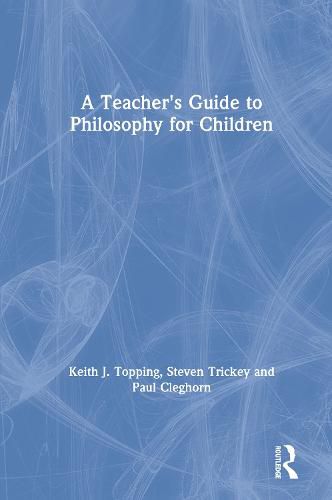Readings Newsletter
Become a Readings Member to make your shopping experience even easier.
Sign in or sign up for free!
You’re not far away from qualifying for FREE standard shipping within Australia
You’ve qualified for FREE standard shipping within Australia
The cart is loading…






A Teacher’s Guide to Philosophy for Children provides educators with the process and structures to engage children in inquiring as a group into ‘big’ moral, ethical and spiritual questions, while also considering curricular necessities and the demands of national and local standards.
Based on the actual experiences of educators in diverse and global classroom contexts, this comprehensive guide gives you the tools you need to introduce philosophical thinking into your classroom, curriculum and beyond. Drawing on research-based educational and psychological models, this book highlights the advantages gained by students who regularly participate in philosophical discussion: from building cognitive and social/emotional development, to becoming more informed citizens. Helpful tools and supplementary online resources offer additional frameworks for supporting and sustaining a higher level of thinking and problem-solving among your students.
This practical guide is essential reading for teachers, coaches and anyone wondering how you can effectively teach philosophy in your classroom.
$9.00 standard shipping within Australia
FREE standard shipping within Australia for orders over $100.00
Express & International shipping calculated at checkout
A Teacher’s Guide to Philosophy for Children provides educators with the process and structures to engage children in inquiring as a group into ‘big’ moral, ethical and spiritual questions, while also considering curricular necessities and the demands of national and local standards.
Based on the actual experiences of educators in diverse and global classroom contexts, this comprehensive guide gives you the tools you need to introduce philosophical thinking into your classroom, curriculum and beyond. Drawing on research-based educational and psychological models, this book highlights the advantages gained by students who regularly participate in philosophical discussion: from building cognitive and social/emotional development, to becoming more informed citizens. Helpful tools and supplementary online resources offer additional frameworks for supporting and sustaining a higher level of thinking and problem-solving among your students.
This practical guide is essential reading for teachers, coaches and anyone wondering how you can effectively teach philosophy in your classroom.